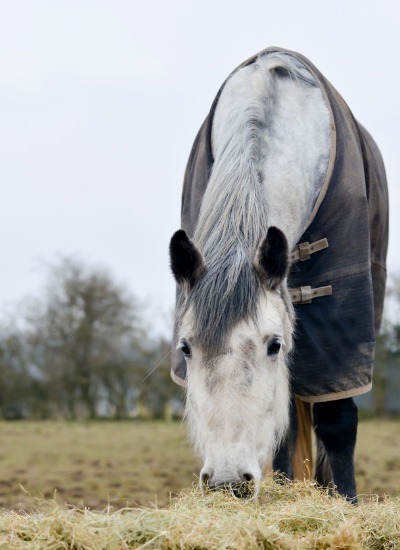During the winter months, horses spend more time stabled, eating preserved forage and bedded on a variety of natural materials. All that means one thing – an increase in respiratory challenges. We’re all familiar with horses having the odd cough, or a little discharge from the nostrils, but do we really need to be too concerned, or is that just normal for winter?
Why respiratory health should not be ignored!
The simple answer is no sign of respiratory stress should be ignored, and that’s for two reasons. Firstly consider their respiratory health. Horses have a very low cough response compared to humans. Unlike us, they’re not likely to just be clearing their throat. Meaning if you hear them cough it is a clear sign of respiratory stress. Secondly, even in the absence of respiratory disease, consider the horse’s athletic potential. Given their high muscle mass to size, and unique physiological adaptations for performance, the respiratory system is widely considered the limiting factor for performance in horses.
This is backed up by research showing that sub-clinical respiratory disease is common in working horses, and particularly those referred for poor performance. So whether it’s specifically supporting respiratory health, or getting the best out of working horses over winter, as horse owners we are advised to consider how we can keep those lungs clear and healthy.
How can we look after our horses respiratory health?
Start with the stable, ensuring it is well ventilated and using low dust bedding. If sharing air-space with others, try to ensure neighbouring horses are also on low dust regimes. Alternatively, if your horse is particularly sensitive, ideally look to move to a more traditional stable facing out to the yard, rather than internal.
If feeding hay, it may be advised to soak or steam, particularly following our exceptional summer where early forage cuts are drier than normal with reports of increased leaf shatter. Avoid over-soaking as that leaches nutrients and fibre.
Ten minutes is sufficient, and ensure it is fed while still wet as the dust returns on drying. Finally, don’t forget to turn your horse out as much as possible, appropriately rugged. Turnout is good not only for their respiratory health, but also mental health and general fitness, so ideally try to include suitable turnout daily.
We should also consider nutritional support!
In addition to good management, targeted nutritional support is advised. Echinacea is perhaps the best-known herb for lung health, but there’s more to herbal respiratory support than echinacea alone.
Research shows supplementing with natural antioxidants can support healthy lungs in working horses, while MSM is useful to support the delicate soft tissue strength.
Look too for natural oils such as clove and eucalyptus for a breath of fresh air, ideally fed from the floor to aid natural drainage.


In conclusion, for a clear way through to Spring, supplement your horse’s winter diet with a synergistic blend of all key nutrients to support all round respiratory health in stabled horses.










